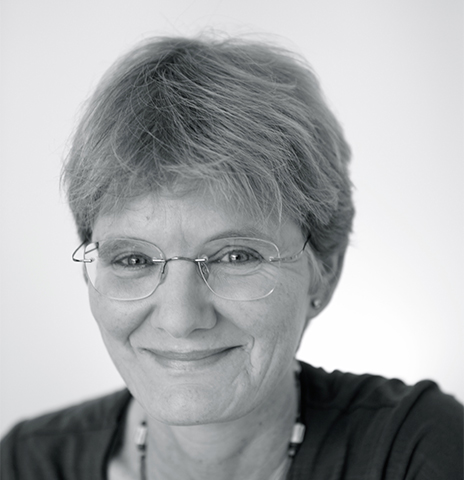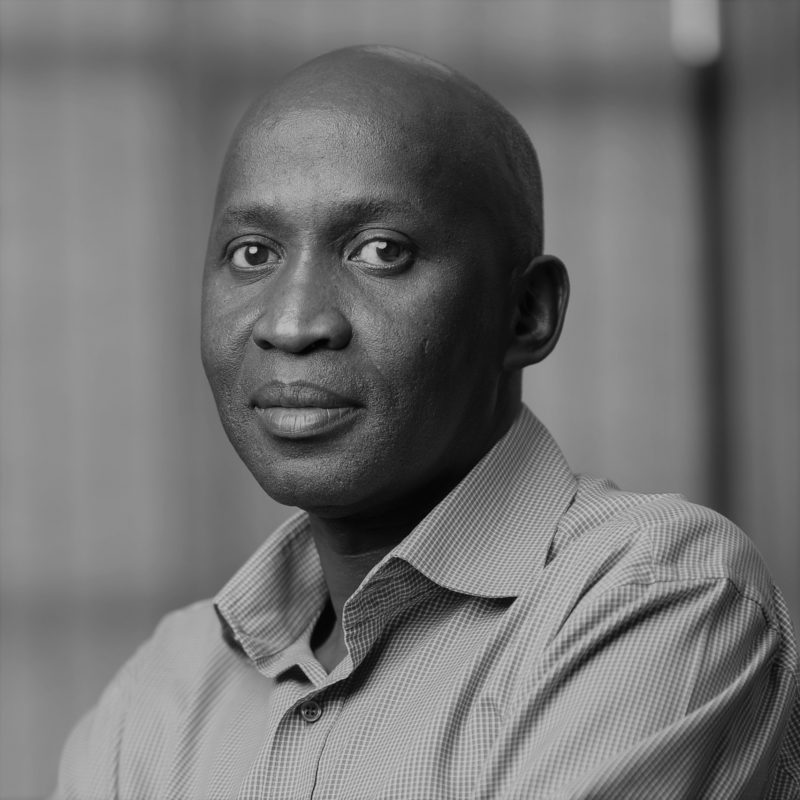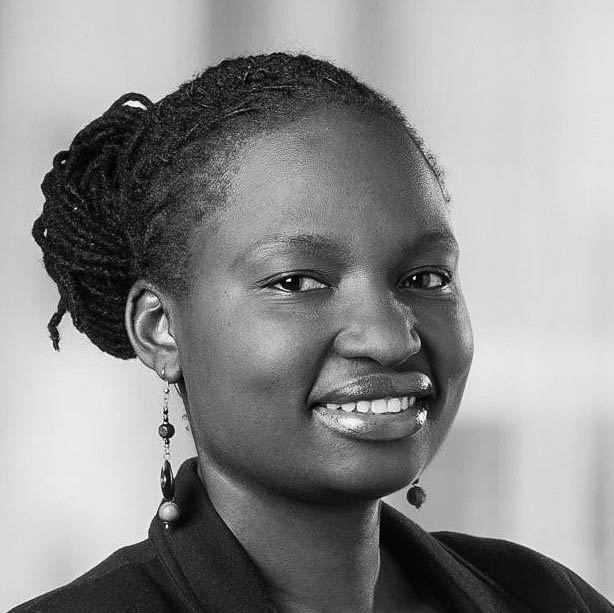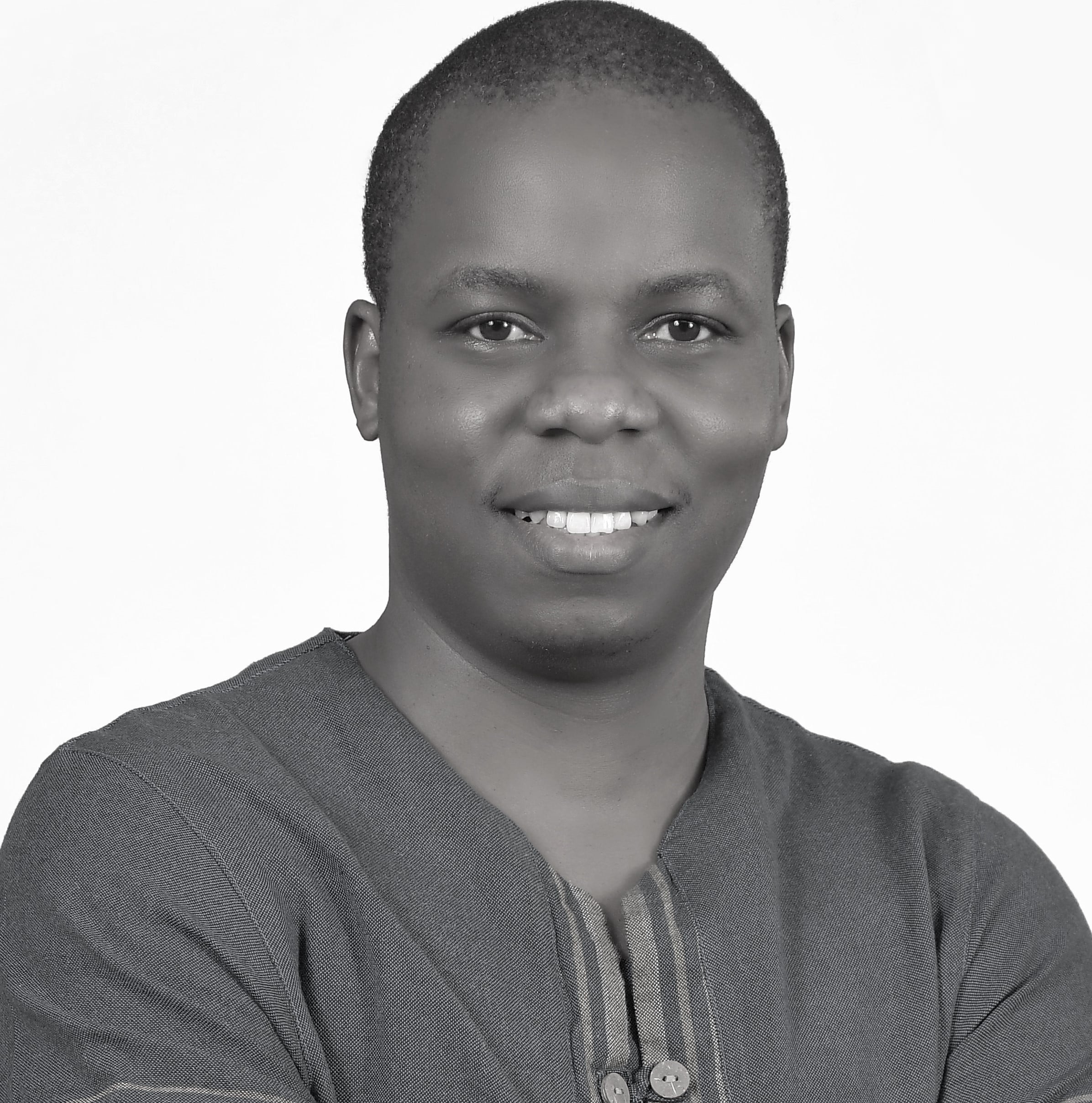
Dr. Jacquie Narosto Oliwa, MBChB
Supervisors
Prof. Mike English

Prof. Mike English
Affiliations:
Nuffield Department of Medicine, Oxford University
Mike worked in Kilifi from 1992 on malaria, in the early years of the ‘Kilifi’ programme, and returned to the UK in 1996 to complete specialist training as a General Paediatrician in 1998. He returned to Kilifi in 1999 to rejoin the programme and work on neonatal illnesses as part of a Wellcome Trust Career Development Fellowship while also working as a paediatrician in Kilifi District Hospital. In 2004 after some work at more national level on quality of paediatric care he moved to Nairobi where he continues to work with the programme as a Wellcome Trust Senior Research Fellow. He was made Professor of International Child Health in Oxford in 2010. His work has included developing national, evidence-based guidelines for care of severely ill children and newborns, at first in 2005 and then updated in 2010 andArray 2013. To complement these Mike and colleagues developed the ETAT+ course, adapting WHO’s ETAT course and expanding its scope to include evidence-based case management of serious illness in the child and newborn periods. The ETAT+ course is now provided with the help of multiple colleagues and the Kenya Paediatric Association with training conducted across Kenya and for Kenyan medical students. Others have taken the course to Rwanda, Uganda and Somaliland. More information on this course and the approach to developing national guidelines can be found at www.idoc-africa.org. The Health Services Unit he leads has undertaken long-term studies by a multidisciplinary team on initiating and establishing ‘best-practices’ within rural government hospitals. This has resulted in a Kenyan team working with the support of international collaborators on hospital performance measurement, cost-effectiveness, motivation, task-shifting, and barriers to implementation. More recently work has started on governance, leadership, human resources for health and knowledge translation. The group are well known for their work on measuring and testing interventions to improve paediatric and neonatal quality of care. Mike and the group work closely with the Kenyan Ministry of Health and he provides technical advice to WHO on a range of issues related to child and newborn survival.


Prof. Caroline Jones
Affiliation(s):
Caroline Jones, a senior social scientist, joined the KEMRI-Wellcome Trust Research Programme in Kilifi from the London School of Hygiene and Tropical Medicine in February 2010. With a background in medical anthropology her research over the past 15 years has focused on treatment seeking and preventive behaviors for malaria and the factors that influence provider practices in sub-Saharan Africa. More recently she has been looking at the implement ability and sustainability of public health interventions, focusing on issues relating to social relationships, organizational structure and management and leadership. Research capacity strengthening and the promotion of the appropriate use of high quality social science research in the development and implementation of public health policy are major concerns underpinning much of her work. A key role in her current position is to contribute to building Kenyan and regional expertise to develop and lead such research.


Dr. Anja van’t Hoog
Affiliation(s):
University of Amsterdam, Netherlands
Anja obtained a medical degree from the University of Utrecht in 1993. After having worked as a resident medical officer in internal medicine, surgery, obstetrics and gynecology, and pediatrics in several Dutch hospitals, she completed the Dutch course in Tropical Medicine and Hygiene at the Royal Tropical Institute in Amsterdam in 1996 and moved to western Kenya. She was a general medical officer in two rural hospitals near Kakamega and joined the KEMRI/CDC program in Kisumu in 2000. While working on programs to establish services in Kisumu for the prevention of maternal-child HIV transmission, HIV counseling and testing, and HIV care and treatment, she developed an interest in epidemiology. She completed an MSc in epidemiology through the external programme of the London School of Hygiene and Tropical Medicine in 2005 and became involved in tuberculosis epidemiology. As the local co-principal investigator she coordinated all aspects of the tuberculosis prevalence survey and other studies described in this thesis. She also was the coordinator of a grant from the European and Developing Countries Clinical Trials Partnership to conduct cohort studies and build site capacity in preparation for tuberculosis vaccine trials. She became the head of the TB research branch that was established at the KEMRI/CDC research and public health collaboration in Kisumu in 2007. In 2010 she relocated to the Netherlands to focus on the completion of this thesis at the department of Clinical Epidemiology, Biostatistics and Informatics at the Academic Medical Centre, and joined the Amsterdam Institute for Global Health and Development in July 2011 as a postdoctoral fellow / epidemiologist. She intends to continue her career in the field of global health, TB and HIV, and to work in Africa again in the future


Prof. Michaël Boele van Hensbroek
Affiliation(s):
University of Amsterdam, Netherlands
Michael Boele van Hensbroek, Professor of Global Child Health and paediatric infectious disease specialist, is a staff member of the Emma Children’s hospital, Academic Medical Centre of the University of Amsterdam. He previously worked in The Gambia (1991-1995), conducting randomized controlled trials on the treatment of severe malaria in children. The research was based at the MRC research laboratories and was part of collaboration between the University of Oxford and the University of Amsterdam. This was followed by a 5-year (1996-2000) training period in pediatrics. In 2000 he obtained a Wellcome Trust career development fellowship to study the aetiology, pathogenesis and outcome of severe anemia in Malawian children. During his fellowship he was based at the Wellcome Trust Research Laboratories in Blantyre, Malawi, conducting his research and working as a consultant in Pediatrics at Queens Elisabeth Central Hospital. In 2005 he (as P.I.) obtained a grand from the Dutch government to develop a Research Support Centre (RSC) at the University of Malawi and conduct a series of related intervention trials on severe anaemia prevention. In 2005 he returned to the Emma Children’s hospital to become the Head of the Global Child Health Group, pediatric advisor for Doctors Without Boarders (MSF) and to complete his training in Pediatric infectious diseases. In 2013 he was appointed Professor in Global Child Health at the University of Amsterdam. His is currently principle investigator of a € 2,8 million project of developing a network of RSC’s in Southern Africa in order to build local research capacity and of €1,0 million grant on studying the etiology of Nodding Syndrome in South Sudanese children. Finally he is co-principle investigator of a large program in Kwara state, Nigeria evaluating the impact of a health insurance system on maternal and child health. This program includes household surveys and randomized studies.
Mentors
Prof. Olubayi Olubayi

Prof. Olubayi Olubayi
Prof. O. Olubayi was born and raised in Kenya and educated at Rutgers University in the USA. Prior to joining Maarifa Education, he was the Vice Chancellor/President of the International University of East Africa (IUEA) in Uganda. He is a scientist and an expert on bacteria, education, learning, leadership and social-entrepreneurship.
As a scientist and eclectic scholar, Olubayi earned his Ph.D. on bacteria-and-plant cell interactions at Rutgers University, holds a research patent on the flocculation of bacteria and has published several scholarly articles in microbiology, biotechnology and social science.
As an educator he taught at Middlesex College and at Rutgers University for 16 years, and has taught critical thinking in the IUEA MBA program. He has been an advisor and consultant to government officials in Kenya and South Africa, and UNDP on matters of literacy, education, biotechnology, sustainable development and global citizenship.
As a social entrepreneur, Olubayi co-founded the non-profit Kiwimbi International and the widely respected American non-profit Global Literacy Project which sets up libraries worldwide and provides global service learning opportunities.
As a thinker, he is the author of the book “Education for a Better World,” and he is currently working on a book on “The Role of a Teacher.”


Dr. Georgina Murphy
Georgina is a Postdoctoral Researcher in health services epidemiology. Her research is currently focused on essential health services for sick newborns in Kenya and evaluating task-shifting as a means to improving service delivery. Georgina is a Research Associate at Green Templeton College and a consultant for the Naji Foundation. Her PhD at the University of Cambridge focused on the epidemiology of non-communicable diseases in rural Uganda.


Dr. Emelda Okiro
Emelda has over 15 years of professional experience in Epidemiology and Public health and heads the Population health unit. She has worked for the Bill and Melinda Gates foundation, Philips Research Africa and also worked with several partners including PMI and ICF Macro.
Emelda returned to the KEMRI Wellcome Trust Research Programme in October 2016 from a Senior Health Scientist position at Philips Research Africa. She is leading the Population Health unit and Research theme within the Programme which aims to understand changing epidemiology of malaria, understand the determinants of health transitions and vulnerabilities at fine scales a major component of which is malnutrition in Kenya and across Africa, and to embed the use of data for decision-making by national ministries.
Her current work focuses on exploring the spatial heterogeneity of child survival across Kenya using multiple survey data to map and explore the Spatial, Social and Environmental determinants of childhood mortality. Emelda has previously worked on the measurements of trends of P. falciparum burden across sites of varying malaria endemicities in Africa and on evaluating the impact of scaled malaria control interventions and supporting regional Ministries of Health in Uganda, Malawi and Kenya. At the Health Metrics and Evaluation (IHME), University of Washington, Seattle Emelda worked on identifying determinants of cost-effective anti-retroviral treatment programs in Kenya, Uganda and Zambia.
During her academic research career, she has been awarded two internationally competitive Wellcome Trust Research Fellowships. Emelda is widely published and has a Bachelor’s degree in Chemistry and Biochemistry from Egerton University, Kenya and a PhD in Epidemiology through the Open University – UK in collaboration with Warwick University, UK.


Prof. Edwine Barasa
Edwine is the director of the Nairobi Programme of the KEMRI-Wellcome Trust Research Programme and also heads the Programme’s Health Economics Research Unit (HERU). Edwine is also a Visiting Professor of Health Economics at the University of Oxford. He has a PhD in health economics (University of Cape Town), a masters degree in health economics (University of Cape Town), and a bachelors degree in Pharmacy (University of Nairobi). Edwine’s research interests include health financing; equity and efficiency analysis in healthcare; economic evaluation of healthcare interventions; measuring health systems’ performance; and health system governance. Edwine has several years of experience of practice, advisory, and conducting health economics and financing research in Kenya and in the broader Sub-Saharan African region. He provides health financing advisory to the Kenya Ministry of Health with his latest roles including appointments by the Minister of Health to the taskforce for the reform of the National Hospital Insurance Fund (NHIF) and Kenya Health Benefits Advisory Panel. At the regional level, his latest appointments include as a member of the advisory board of the Africa CDC’s Health Economic Unit, and as co-chair of the Africa Universal Health Coverage Commission. He also provides health financing technical advisory support to several international development organizations, including the World Bank and the World Health Organization (WHO), focusing on the broader Sub-Saharan African region including Kenya, Ghana, Somalia, Malawi, Madagascar, Uganda, Rwanda, Sudan, South Sudan, Mozambique, and Egypt.
Jacquie is a paediatrician and clinical epidemiologist, currently pursuing her PhD studies at the Academic Medical Centre of the University of Amsterdam, The Netherlands. Her interests lie in health systems research, specifically use of implementation science theories to improve quality of care to sick children. Her PhD work involves understanding and improving case detection of tuberculosis (TB) in children, including use of new and emerging diagnostic tests.
Her past research work involved being an investigator on a large multi-site clinical trial on treatment of severe pneumonia in children and an observational study on optimising diagnosis of TB in children-both contributed to policy change in Kenya. She was also the lead in a project implementing use of donated medical equipment and best clinical practice guidelines to improve quality of care in maternal, new-born and child health in several hospitals in rural Kenya.
She serves on the Paediatric TB Technical Working Group, advising the Kenya National TB Programme on matters pertaining to childhood TB. She was involved in updating the Paediatric TB guidelines, developing a training curriculum and delivering training to health care workers in Kenya. She is also a member of the Union of Lung Health and the WHO Child TB subgroup-involved in global child TB policies.
- 51
- 66
- 48
- 104
- 44
- 423

